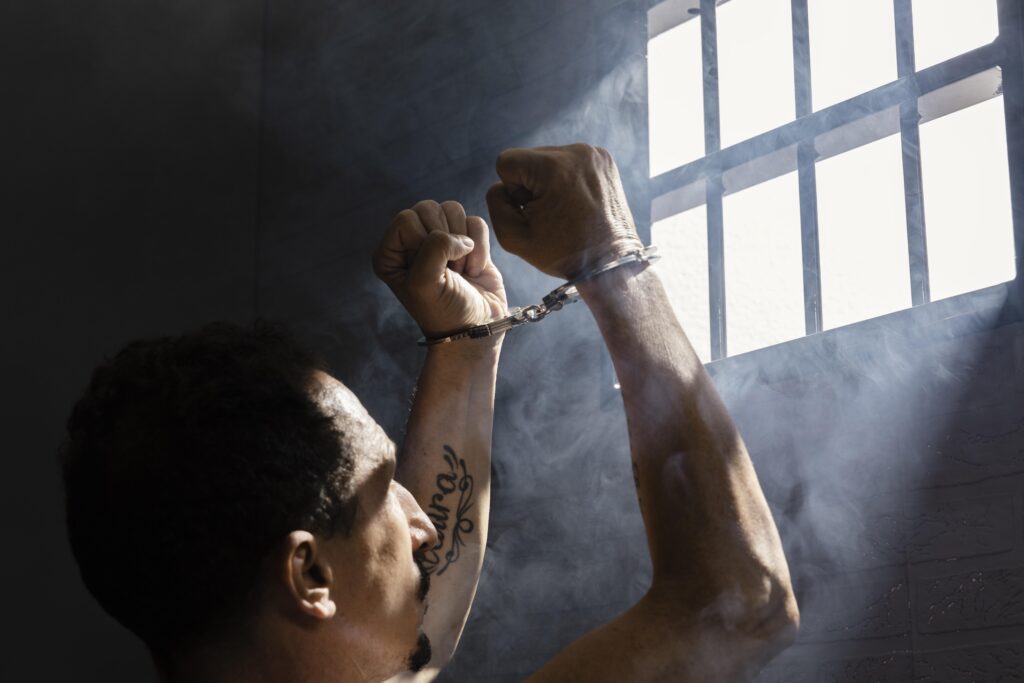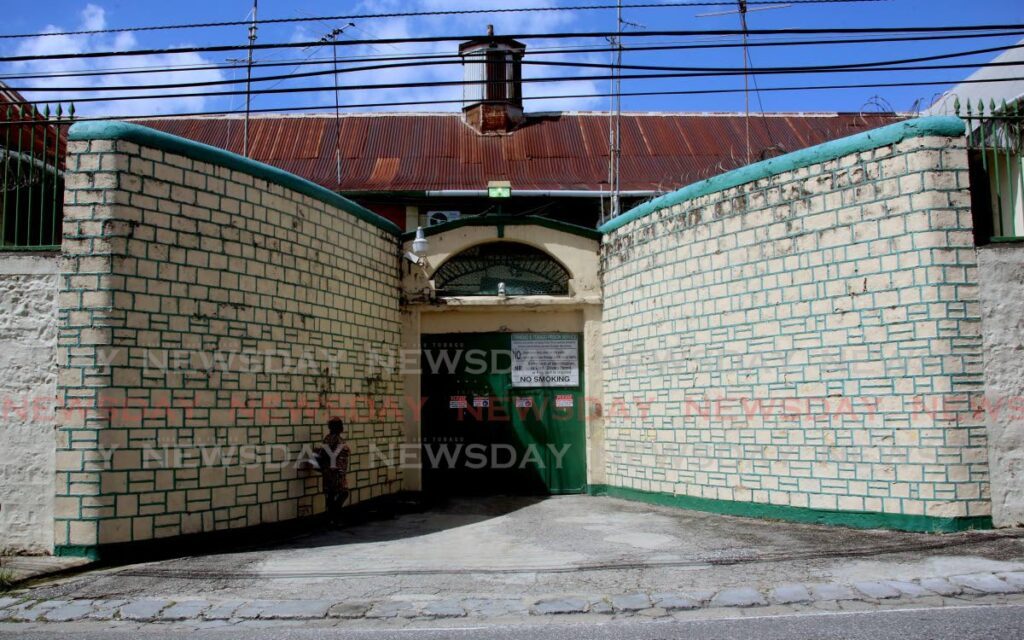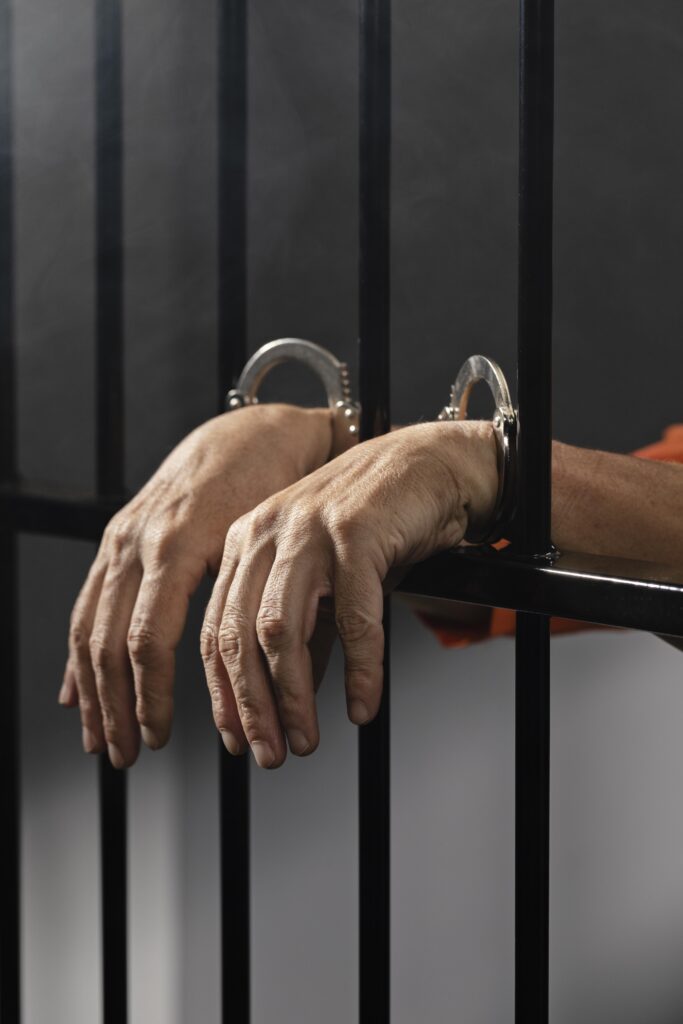Dealing with rival gangs behind bars

GANG activity in TT is pushing the murder toll to record highs every year. For some, gangs determine where they go and what they wear. Gang culture has found its way into the music the youths listen to.
Meanwhile, we all live in fear that we could be the next victim or casualty of gang activity.
This is the final part in a Newsday series which examined the culture behind gangs and what we can do to save our youths and nation.
What draws our youths to gang life? How far does its reach extend, both behind bars and on the outside? And what are the authorities, schools, psychologists and religious leaders doing to combat gangs and their influence on our youths?
Debbie Jacob
IN a country plagued by gang-driven violence and constant turf wars meant to establish and expand territory, there’s one place all gangs are bound to meet: prison.
Here, gangs are most visible and invisible, paradoxically speaking.
There are hiding places, recruitment areas, and opportunities to reform that are not found outside. The challenges prison officers face are ever-present.
They stretch back decades into the past. History plays a vital role in understanding the problem. Tension builds. Measuring any progress in defusing gang influence in prison remains debatable.
When guests assembled in the Port of Spain Prison Library on November 21, 2017, to hear inmates debate the topic "Are absentee fathers responsible for boys joining gangs?" the audience quickly realised they were experiencing master debaters. They did not know those debaters came from gangs or that two rivals, Rasta City and the Muslims, were performing on the same stage.
Just a few months before the debate, prison officers expressed outrage when I got approval for a particular Muslim student to join the class. In my empty classroom, they said, “You don’t understand. We don’t even allow members of the Muslim gang to be on the same floor as your students. Now we need two extra officers in your class – one for you and one for him and when a fight breaks out – when, not if – you will see what you have done.”
That fight never broke out. Last week a prison officer explained how that peaceful co-existence of gangs in my class would have occurred.
“They can suspend gang affiliations when they come to class because they need to prove they have participated in rehabilitative programmes while on remand when their cases are heard in court. This is even more important now that bail is possible for murder accused,” said the officer, who has several years of experience dealing with gangs in jail.
Even if their motives are self-preservation rather than getting an education, classes and skill-based programmes offer opportunities for young men to escape gangs for a short time and see other possibilities for their lives.
“If they can see other gang members got something out of class and became successful out there, then that is hope for them,” said the officer, who spoke on the condition of anonymity, with permission from the prison commissioner.
He said gangs created externally take up residence in prisons when inmates are arrested and carry on their rivalry. The two entrenched gangs are still the Muslims and Rasta City.
But there were gangs before them. In the late 90s through the early 2000s, the US had a massive deportation programme. Many men deported to TT belonged to US gangs.
“In prison, we had gang members who had been in the Bloods and Crips from Los Angeles. But they were ad-hoc gangs and lacked organisation. Then we had gangs developing in the hot spots like John John, Beetham and Laventille.
“After the 1990 attempted coup, the Muslim faction developed. The Muslim gangs of today are the children and grandchildren of the Muslimeen who participated in the coup attempt.”
Over time, these gangs became more organised and diversified. The officer said during the Jamaat al Muslimeen era, the Muslim gangs forming didn’t stand for the sale of illegal drugs on the block.

“But gangs became more organised, to the point they got themselves involved with organised crime – drugs, kidnappings, murders.”
Today’s gangs still include Rasta City and the Muslims, with their splinter groups like tentacles reaching across this country. Their new association with numbers, like the 6s, 7s and 9s has led to warnings for postal workers not to wear certain colours or numbers when they’re delivering mail, because they could be misidentified as gang members and killed.
“Gangs now are not content with controlling a neighbourhood. They want widespread power,” said the officer.
Powerful new gangs include ABG – an acronym for “Anybody Gets It.”
“It is said that they formed from inside of prison and spread outward,” said the officer. “They have no relationship or affiliation with anyone. I call them the independent contractors. They are fighting everyone.”
Their brutality defines them.
“Resistance is one of the latest gangs. They had a stronghold in Caroni and spread to Sangre Grande, Toco, Tunapuna and St Augustine. They are islandwide now,” said the officer.
“If you’re not in a gang when you come to prison, you will likely join one inside. There is aggressive recruitment in prisons. Joining a gang is seen as self-preservation. Then there’s no turning back.
“You can be a devout practising Muslim in prison and not be part of a gang, but once you are identified as a Muslim in prison, you will be looked at as being part of a gang.”
Gangs inside and outside prison are not always at war.
“Even in their wars and divergence, there are times when they are unified,” said the officer. “They have truces when they want to get something bigger done, like step up their war against the police or gain control of an area.”
The prison officer said to deal with gangs in prison, officers must learn the tenets of the Muslim and Rastafarian religions.
“This way you can educate the inmates about how what they are doing is not part of the religion.”
He said many members of Rasta City have dreadlocks, “but they aren’t the true Rastafarians that I knew when growing up.
"They’re more into a Jamaican subculture like that of Tivoli, a hard-core ghetto. Rasta City has dub artistes and the same concept of a posse. They have their performers singing on the other gangs, and that causes wars.”
Prison and the “free world” is a revolving door for gangs. Outside and in prison, gangs target impoverished areas.
“The children who leave schools, doing nothing and are unemployable, sell drugs, steal vehicles, rob people, shoot and extort businesses. Gangs target girls as recruits for sex, to hold weapons for them or lure their victims to places.”
He said sometimes the government supports gangs unknowingly.
“Community-led government programmes and sports introduced to an area need leaders, and gang leaders fit the concept of a community leader.”
To keep the peace, Port of Spain Prison has kept Muslims on one floor, and Rasta City men on another floor with other gang members in their own section. Indigent inmates are often kept apart from these sections because they are easy targets for gang recruitment.
The greatest hope in prison is a small minority of men who earn respect and power with no gang affiliation. They too became debaters and positive leaders in Remand Prison in Golden Grove in Arouca.
“Once you can get more independents going who can prove you can make it outside of a gang, you have hope,” said the officer.

But it’s a tall task for one man’s charisma to compete with a gang’s collective power. Dealing with all these dynamics in prison is like a chess game with some invisible players too.
Prisons use imams from outside prison to do Juma on Fridays to prevent radicalised inmates from leading the Muslim groups' prayers.
“The Muslims in the jail are a powerful group because they are under the guise of a religious sect,” said the officer. “Some are really religious, some aren’t, but you can’t tell just by looking.”
Then there are those inmates who don’t want to reform. Prison is their school to hone organisational skills. Inside prison, they operate just like outside, with foot soldiers, middle, senior, executive management and the head of the organisation.
But prison programmes are still one way for some inmates to get the skills they need to make it in the “free world.”
“And if we can bring them back to share that experience of success, we can create inspiration,” said the officer.
But this all takes time and patience.
“An officer who worked in a high-risk prison wing once told me it took four years for him to change the culture of his wing.”
That officer was assassinated.
Prison officers believe it will take years to change gang culture.
“It didn’t happen overnight. Now, the challenges are even greater with a struggling economy. We have to understand what got us here and find practical solutions that give young men the confidence, support, power and economic success they desire,” said the prison officer.
In the debate about whether absentee fathers were responsible for teens joining gangs, the side arguing against that statement won. They argued, "There are many reasons for gangs: poverty, irrelevant education, lack of government leadership, poor self-esteem and the need for loyalty, trust and respect.
"The problem is complex. There is no single cause for any problem.
"There is no easy fix for a problem that was left to spiral out of control."
Editor’s note: Most of the inmates on the debate team mentioned in this story won their cases and found success in the “free world,” mainly in the agricultural sector.
Akili Charles, the inmate behind the bail-for-murder-accused law, was shot dead on July 30, 2022. The Muslim student identified is still in prison awaiting his trial.
The author, Debbie Jacob, is the founder of the Wishing for Wings Foundation, which helped introduce skills-based programmes such as barbering and PVC furniture-making in the prison.
Jacob formed the debate club in prison and has taught inmates English language and literature.
Formerly a full-time journalist, she writes a Monday column for Newsday.

Comments
"Dealing with rival gangs behind bars"